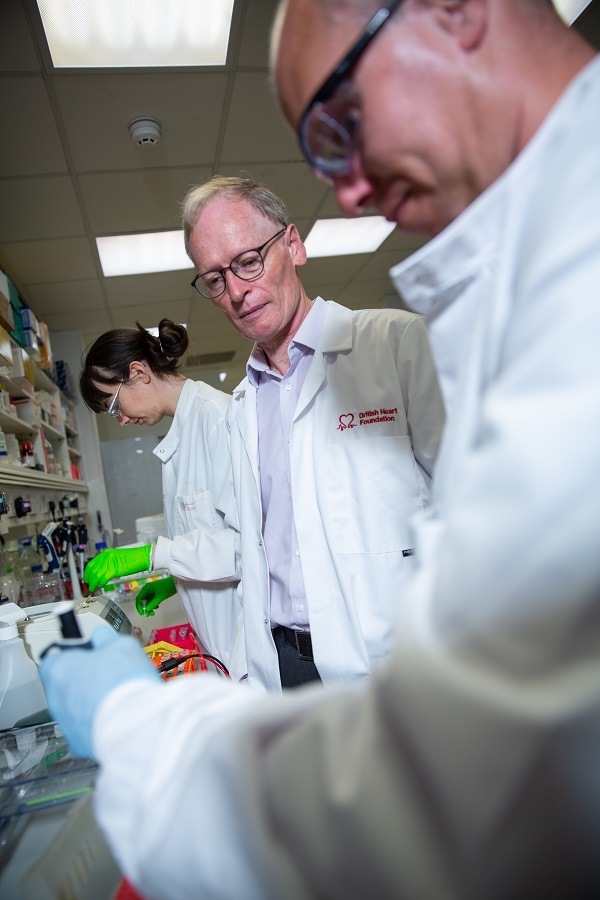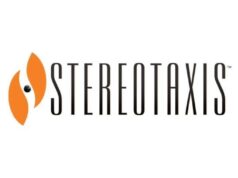
A project to develop genetic therapies to effectively cure cardiomyopathy has been announced as the winner of the British Heart Foundation’s Big Beat Challenge, a £30 million innovation project targeting unmet needs in heart disease.
CureHeart—a project involving researchers from the University of Oxford (Oxford, UK) and Harvard Medical School (Boston, USA)—was named today as the recipient of the grant funding prize. The team was selected by an international advisory panel chaired by Sir Patrick Vallance, chief scientific advisor to the UK Government.
It is estimated that one in 250 people worldwide—around 260,000 people in the UK—are affected by genetic cardiomyopathies, with a 50:50 risk they will pass their faulty genes on to each of their children. In many cases, multiple members of the same family will develop heart failure, need a heart transplant, or are lost to sudden cardiac death at a young age.
Hugh Watkins from the Radcliffe Department of Medicine at the University of Oxford and lead investigator of CureHeart, said: “This is our once-in-generation opportunity to relieve families of the constant worry of sudden death, heart failure and potential need for a heart transplant. After 30 years of research, we have discovered many of the genes and specific genetic faults responsible for different cardiomyopathies, and how they work. We believe that we will have a gene therapy ready to start testing in clinical trials in the next five years.
“The £30 million from the BHF’s Big Beat Challenge will give us the platform to turbo-charge our progress in finding a cure so the next generation of children diagnosed with genetic cardiomyopathies can live long, happy and productive lives.”
The team will take the gene-editing technology of CRISPR and deploy techniques called base and prime editing in the heart for the first time. These approaches use molecules that rewrite the single mutations that are buried within the DNA of heart cells in people with genetic cardiomyopathies.
They will focus this technology on two areas. First, where the faulty gene produces an abnormal protein in the pumping machinery of the heart, the team will aim to correct or silence the faulty gene by re-writing the single spelling mistakes or switching off the entire copy of the faulty gene.
Second, where the faulty gene does not produce enough protein for the heart muscle to work as it should, the team plan to increase the production of healthy heart muscle proteins by using genetic tools to correct the function of the faulty copy of the gene or to stimulate the normal copy of the gene.
The team have already proven that these approaches are successful in animals with cardiomyopathies and in human cells. They believe the therapies could be delivered through an injection in the arm that would stop progression and potentially cure those already living with genetic cardiomyopathies. It could also be used to prevent the disease developing in family members who carry a faulty gene but have not yet developed the condition.
Christine Seidman at Harvard University and co-lead of CureHeart, said: “Acting on our mission will be a truly global effort. We’ve brought in pioneers in new, ultra-precise gene editing, and experts with the techniques to ensure we get our genetic tools straight into the heart safely. It’s because of our world-leading team from three different continents that our initial dream should become reality.”
Vallance, chair of the BHF’s International Advisory Panel and Government Chief Scientific Adviser, said: “CureHeart was selected in recognition of the boldness of its ambition, the scale of its potential benefit for patients with genetic heart muscle diseases and their families, and the excellence of the international team of participating researchers.”










Thank you for all your failures & successes in finding a solution to this horrible heart inherited disease!
I know it’s been a long journey. We are always ready to “raise our hand” and help any way we can in clinical trials